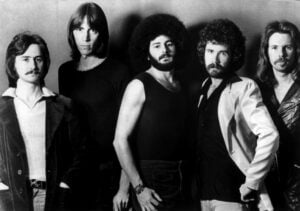How Eric Clapton United Rock’s Biggest Names for One Historic Recording

via hutchinson2khi9320# / YouTube
The Song That Brought Many Together
There are co-written songs, and then there is Eric Clapton’s Layla, which may stand as one of the most collaborative tracks in rock history. From the literary influence behind its story to the musicians who gave it shape, the song became a clear example of how “many hands make light work.”
The effort was worth it. Layla became a global Top 20 hit across the United States, the United Kingdom, Ireland, Canada, New Zealand, and the Netherlands. And despite the deeply personal inspiration at its core, Clapton and the friend tied to the story managed to keep their bond intact.
View this post on Instagram
A Tale of Forbidden Love and Real-Life Heartache
Long before the studio sessions began, Clapton was gathering inspiration. Most famously, the song reflected his love for Pattie Boyd, the wife of his close friend George Harrison. Clapton’s affection began while she was still with Harrison, and years later he married her. Surprisingly, Harrison held no resentment and even attended the wedding of his former spouse and longtime friend.
Clapton also drew from a 7th-century tale of Qays ibn al-Mulawwah, an Arabian poet who became so consumed with love for Layla bint Mahdi that he lost his sanity. In the story, Layla’s father forced her into marriage with another man, pushing Qays further into despair. Clapton related to the poet’s struggle, as he too felt torn watching the woman he loved remain with another.
Lyrics That Revealed His Feelings
Clapton channeled that pain directly into the lyrics of Layla. He sang: “Make the best of the situation ‘fore I finally go insane. Please don’t say we’ll never find a way. Tell me all my love’s in vain. Layla, got me on my knees, Layla. I’m begging, darling, please, Layla.”
Through the words, listeners could hear both longing and desperation. The mixture of raw honesty and powerful music allowed the song to resonate with audiences around the world.
View this post on Instagram
Building Derek and the Dominos
After the breakup of Cream, Clapton experimented with different groups before forming Derek and the Dominos. The lineup included Carl Radle, Bobby Whitlock, and Jim Gordon—musicians Clapton had worked with as part of Delaney & Bonnie’s backing band. Together, they began shaping the only studio album the Dominos would release: Layla and Other Assorted Love Songs.
Clapton and Gordon first drafted Layla as a slower ballad. But the project transformed dramatically once another musician entered the picture.
Duane Allman and the Signature Riff
Duane Allman, already making waves with the Allman Brothers Band, joined the sessions and left an immediate mark. It was Allman who created the unforgettable guitar riff that gave Layla its identity. What started as a simple ballad evolved into a soaring rocker with Allman’s contribution.
Meanwhile, Jim Gordon introduced the piano section that closes the track, turning it into a two-part piece. But this addition carried controversy, as some argued it wasn’t entirely Gordon’s to use.
The Rita Coolidge Dispute
Bobby Whitlock later explained that the piano part had been taken from Gordon’s girlfriend at the time, singer-songwriter Rita Coolidge. “Jim took that piano melody from his ex-girlfriend, Rita Coolidge,” Whitlock said in an interview. “I know because in the D&B days, I lived in John Garfield’s old house in the Hollywood Hills, and there was a guest house with an upright piano in it. Rita and Jim were up there in the guest house and invited me to join in on writing this song with them called Time. Jim took the melody from Rita’s song and didn’t give her credit for writing it. Her boyfriend ripped her off. I knew, but nobody would listen to or believe me.”
A Star-Studded Effort
With Clapton’s vision, Allman’s guitar work, Gordon’s disputed piano line, Whitlock’s steady presence, and the influence of Boyd, Harrison, and even a centuries-old poet, Layla became more than just a love song. It was the result of countless influences, personal struggles, and contributions from some of rock’s most significant figures.












